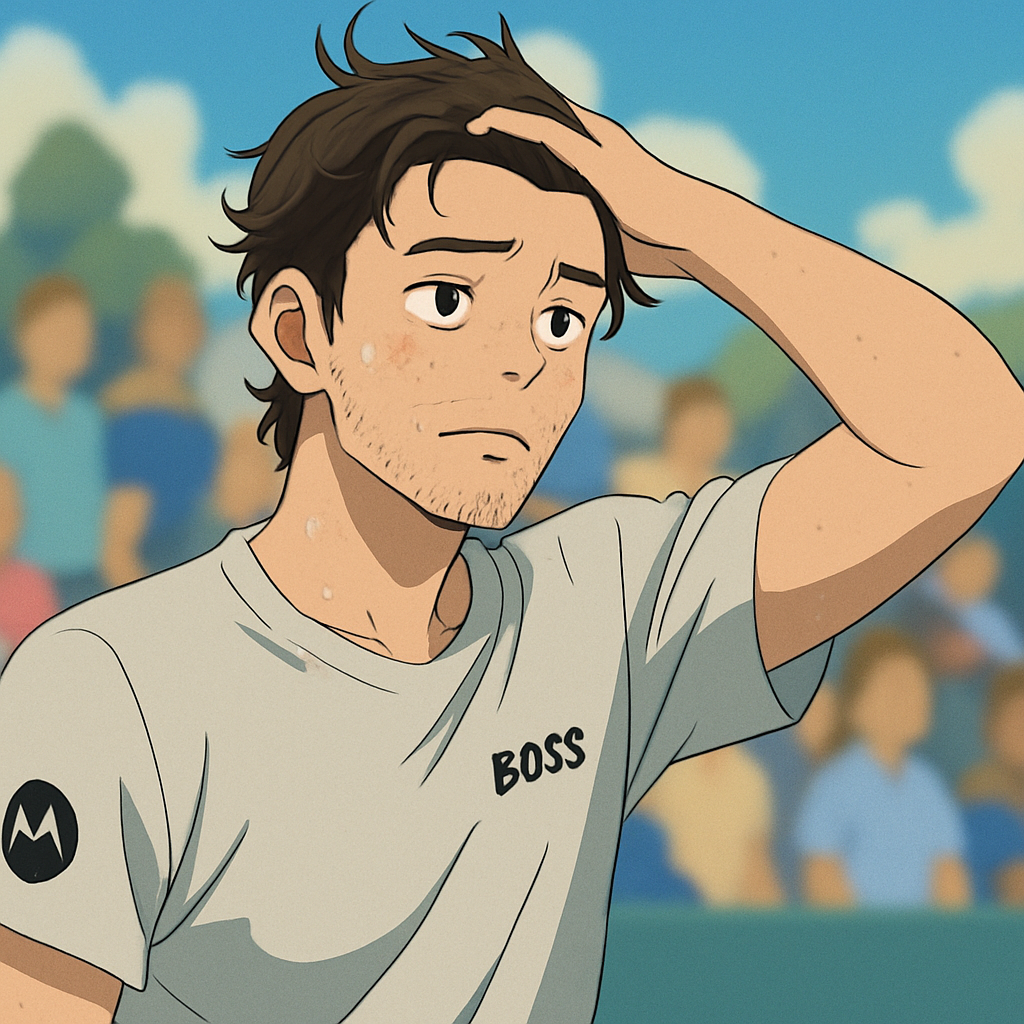American tennis star Taylor Fritz demonstrated a masterclass in diplomatic evasion this week, skillfully sidestepping a potentially explosive question about the burgeoning rivalry between Jannik Sinner and Carlos Alcaraz. The World No. 12, known for his powerful serve and candid nature, made it clear he had no intention of being drawn into the fan-fueled debate, fearing his words would be weaponized and he would be "destroyed" online.
The moment occurred during a press conference at the ongoing Madrid Open. A journalist, undoubtedly seeking a headline-grabbing quote, asked Fritz for his analysis on the differences between the two young phenoms who have taken the ATP Tour by storm. Instead of taking the bait, Fritz laughed and shut down the line of questioning before it could even begin, showcasing a level of media savvy that many veterans spend years cultivating.
The Question That Wasn't Answered
The exchange was brief but telling. The reporter set the stage by acknowledging the intense global interest in the Sinner-Alcaraz dynamic, two players widely seen as the cornerstones of tennis's next generation. Fritz, anticipating where the question was headed, immediately interjected with a smile. "Don't do that. Don't do that to me," he pleaded good-naturedly.
He then elaborated on his reluctance, explaining the no-win situation such a comparison creates. "I say one thing and then I get destroyed. I'm not going to answer it," he stated firmly. His fear wasn't of the players themselves, but of their massive and passionate fanbases, who often engage in fierce online debates defending their favorite player's legacy, often from the smallest comment or perceived slight.
Navigating the Modern Media Minefield
Fritz’s hesitation is a telling sign of the times for modern athletes. In an era where every press conference soundbite can be clipped, shared, and dissected on social media within seconds, players are increasingly cautious. A nuanced opinion can be stripped of its context and turned into a viral controversy, leading to a barrage of negative comments and criticism.
This is especially true when discussing figures like Sinner and Alcaraz, who have generated a level of fervent, almost football-like support rarely seen in individual sports like tennis. Their matches are dubbed "clashes of the future kings," and their every move is analyzed by millions. For a fellow competitor like Fritz, commenting publicly is seen as stepping into a digital minefield.
The potential pitfalls of such a question are numerous:
- Alienating a Fanbase: Praising one player slightly more could be seen as disrespect to the other.
- Creating Headlines: A simple compliment could be twisted into a "Fritz claims Sinner is superior" headline.
- Locker Room Tension: While unlikely, off-hand comments can sometimes create unnecessary tension among peers.
The Sinner-Alcaraz Phenomenon
To understand Fritz's caution, one must appreciate the magnitude of the rivalry he was asked to dissect. Carlos Alcaraz of Spain and Jannik Sinner of Italy are not just talented players; they are global superstars who have captivated the sporting world.
- Carlos Alcaraz: The explosive Spaniard known for his breathtaking shot-making, incredible speed, and two Grand Slam titles (US Open 2022, Wimbledon 2023).
- Jannik Sinner: The cool, composed Italian famed for his flawless ball-striking, relentless power, and his recent maiden Grand Slam victory at the Australian Open 2024.
Their head-to-head record is currently locked at a tantalizing 4-4, with each match being a high-octane, highlight-reel affair. Their most recent encounter, a thrilling semifinal at the Indian Wells Masters in March, was won by Alcaraz in a three-set battle. Their contrasting styles and likable personalities have created a perfect storm for a rivalry that promises to define the next decade of men's tennis.
A Veteran's Prudent Avoidance
At 26 years old and a seasoned pro on tour, Fritz's decision to avoid the question wasn't born out of a lack of opinion, but rather from experience. He has faced both players multiple times, holding a 2-5 record against Sinner and a 1-4 record against Alcaraz. He knows their games intimately and understands their strengths firsthand.
By refusing to compare them, Fritz demonstrates a respect for both competitors and an understanding of the larger ecosystem of the tour. His response keeps the focus on his own game and his own ambitions in Madrid, rather than on generating content about others. It was a smart, self-preserving move that acknowledged the hype without contributing to the noise.
In the end, Fritz's non-answer spoke volumes. It highlighted the immense pressure and scrutiny that comes with being at the top of the game today, not just from opponents on the court, but from millions of fans on digital platforms. His fear of being "destroyed" is a stark reminder of the intense, and often toxic, nature of modern sports fandom.
Ultimately, Fritz chose to let the tennis do the talking. When asked who he would rather face in a potential later round, he concluded, "I don't know, I'll play whoever's on the other side of the court." For Taylor Fritz, that’s the only battle worth focusing on.

